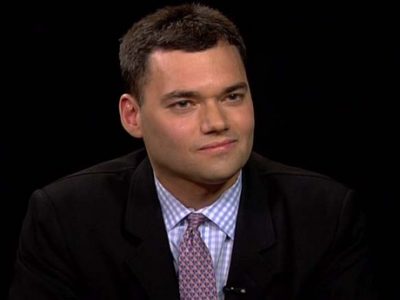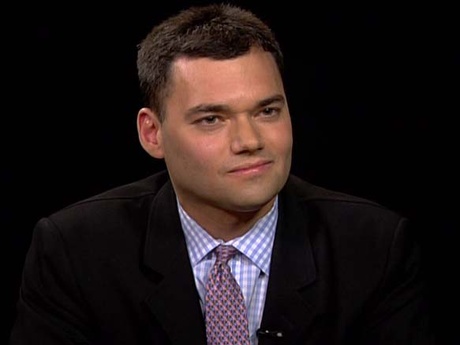
In a stunning twist, a national organization just invested a great deal of time and effort into researching the nature of Israel’s reputation on college campuses. The American-Israeli Cooperative Enterprise, a non-profit established to spread knowledge of “the values our nations share” (America and Israel), has produced the latest report on anti-Israel and anti-Semitic sentiment on college campuses.
Their big discovery? Most students, Jewish or not, don’t really care much about the Israeli-Palestinian conflict.
Their study, “Israel and the Campus: The Real Story,” offers a great deal of statistical analysis, tracking 674 anti-Israel events at 108 universities. In addition, the AICE put out a survey to Jewish students to hear what they had to contribute.
We took issue with a few of the report’s findings and recommendations. First, the authors of the report found it necessary to devote much of the report to criticism of Peter Beinart. Certainly, Beinart pushes the envelope with his advocacy for certain types of selective boycotts, but was it really necessary to subtitle a section “The Beinart Fallacy” and include an unflattering picture of him? For an organization that calls itself “nonpartisan,” in a report that is supposed to be unbiased, this seems foolish and not particularly relevant.
Second, there are a few statistics they cite that seem to contradict one another. They start off the report by stating that, out of 4,000 schools, there are only a few hundred that have pro-Israel organizations on campus (363 Hillels, but no total number is provided). Similarly, there are only 330 that have anti-Israel organizations. Then, later on, they say that 54% of Jewish students are involved with pro-Israel organizations. This seems mathematically impossible. Here’s how they get there: Because Hillel usually offers some amount of pro-Israel programming, they deem anyone who is “involved” with Hillel to be “involved” with a pro-Israel organization.
While it would be a lie to say Hillels are apolitical (and they shouldn’t feel the need to be), the truth is that most Hillels’ primary functions are to create communities for prayer, holiday observance and cultural connection to Judaism. Hillel also does far more on many campuses where the resources are available, but to say that an involved Hillel student is inherently involved with pro-Israel organizations is to do a disservice to the incredible diversity of programming that Hillel offers.
So, we would argue that while 54% of Jewish students may be involved with pro-Israel organizations, far fewer are actually involved in pro-Israel advocacy. Ironically, if the AICE took Hillel out of the situation and performed the survey again, they would probably come up with a lower total than ours, though. That is because they did not include J Street, a pro-Israel, completely and utterly politically-based organization, as part of the equation. They say flat out, in a footnote, that “We did not include J Street, which now claims to have nearly 40 chapters, in either category” (pro-Israel or anti-Israel). Why not? 40 chapters sounds like nothing to sneeze at.
In any case, J Street doesn’t claim to have nearly 40 chapters. They have nearly 40 chapters. Because chapters, like sovereign nations, don’t claim to exist. They just exist. Second, in incredibly ironic fashion, the AICE just publicly delegitimized a pro-Israel organization. Given that pro-Israel groups expend so much breath countering what they see as efforts to delegitimize Israel this shouldn’t sit well with anyone. This comes just a few pages before refusing to use what they call “the A-word” (Apartheid) because simply using the word reminds Israel’s detractors that Israel and the A-word are linked.
However, the report also makes a point that often gets ignored in media coverage of campus debate. It outlines the two major anti-Israel organizations, Students for Justice in Palestine (SJP) and Muslim Student Associations (MSA), and it importantly states that MSAs around the country are generally far less politically involved than we might think.
This may seem counter-intuitive, but Muslim Students Associations, at most schools, serve mostly as associations for Muslim students. Their goal is to enhance Muslim student life on campus and serve students who are looking to engage with Islam. We’re going to steal a sentence from ourselves (see above, paragraph 3). While it would be a lie to say Hillels MSAs are apolitical (and they shouldn’t feel the need to be), the truth is that most Hillels’ MSAs’ primary functions are to create communities for prayer, holiday observance, and cultural connection to Judaism Islam. Outlining the fact that they are not underground spies for Al-Qaeda is important, because that seems to be a prevailing assumption by many in the Jewish world. We commend the AICE for addressing that issue head on and not simply brushing it aside.
So this report did not leave us thrilled with the American-Israeli Cooperative Enterprise. In addition to the critiques we laid out here, their recommendation that we need to “teach teachers how to teach Israel” could easily be interpreted as “we know how to be a University professor better than you, despite your PhD.” But we believe some of its major claims are vitally important. Most students don’t really care about the Israel-Palestinian conflict and Muslim Student Associations are not overly political, destructive parts of campus life. We may one day reach a point where the large majority of college students engage with this issue, but because college students tend to engage only when issues reach a crisis point or something truly tragic happens, we hope that day won’t come too soon.

